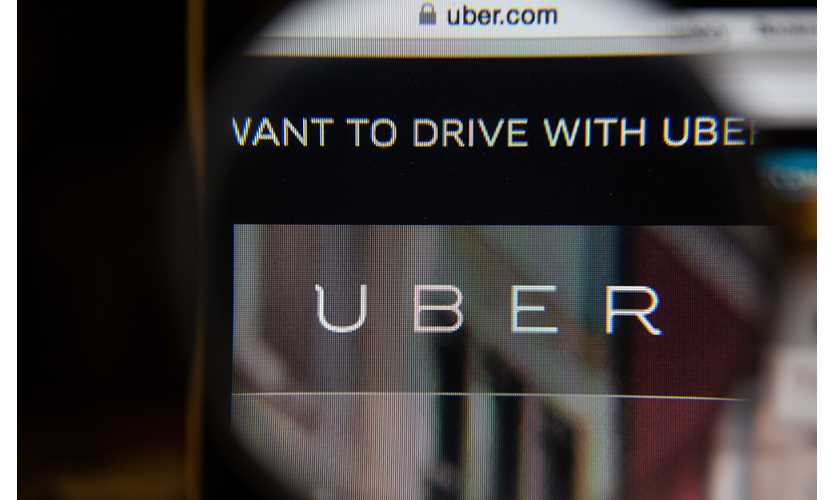Canceled ‘Roseanne’ highlights reputation risks
Reprints
ABC, with the backing of parent The Walt Disney Co., may have limited any significant potential reputational damage when it swiftly canceled Roseanne Barr’s show last week following her offensive tweet, despite the anticipated drop in revenue from the cancellation.
“One could argue that their reputational value actually got a boost,” said Nir Kossovsky, CEO of Pittsburgh-based Steel City Re, which offers reputational risk coverage.
While ABC/Disney could not be reached for comment on whether it has insurance to cover the potentially hefty drop in revenue, experts say only limited stand-alone reputational risk coverage is being purchased in the market, with the coverage more often offered as part of cyber or directors and officer liability coverage.
Although Ms. Barr later apologized, her revived hit show, “Roseanne,” was canceled last week shortly after she issued a racist tweet about Valerie Jarrett, an African-American who was a senior adviser to President Barack Obama.
According to news reports, the show had brought in an estimated $43 million in advertising revenue and could have also collected more than $60 million had it returned for a planned 13-episode run in September.
Daniel W. Gerber, a partner with Gerber Ciano Kelly Brady L.L.P. in New York who is familiar with reputational risk issues, said ABC and Disney decided this was a “necessary move,” although some charged the cancellation was a mistreatment or overreaction, creating polarized sides.
“They had to weigh it out” and made the decision this was needed to protect their brand, said Mr. Gerber, who did not offer his own opinion on the matter.
“It’s a very nuanced situation,” said Brian Taliaferro, Los Angeles-based senior vice president of entertaining and hospitality for JLT Specialty USA, a unit of Jardine Lloyd Thompson Group P.L.C. The show helped attract advertising revenue, “but now they’ve got to fill this gap.”
Mr. Taliaferro said there is coverage available under a policy that typically includes coverage for death, disability and disgrace, with the latter providing coverage for statements or illegal acts, “protecting your production cost and possible advertising dollars that may be at stake.”
However, “it’s much more difficult to buy insurance in today’s world” for this risk, with lower limits, higher prices and fewer insurers providing the coverage, said Mr. Taliaferro, pointing to the recent negative publicity concerning high-profile personalities stemming from the “#MeToo” movement as well as racial issues.
The reputational risk market “is contracting quite a bit,” and obtaining the insurance now “requires a high level of scrutiny of the character” of the person being insured, he said.
High-level CEOs may be able to obtain $25 million-$50 million in coverage from the Lloyd’s market, but less than $25 million is available for high-profile celebrities and in some cases is not available at all, Mr. Taliaferro said.
“You see a lot of reputation risk added onto cyber policies in terms of data breach,” Mr. Gerber said. The coverage is also added on to certain D&O policies because of the possibility of derivative lawsuits, he said.
Judy Selby, Charlottesville, Virginia-based principal of Judy Selby Consulting L.L.C., said reputational risk insurance is not widely recognized as a risk management tool.
She said while cyber insurers “are very vocal about how important their reputational coverage can be in terms of PR and all that after some type of a negative event … I don’t know the marketplace is as aware of reputational risk coverage outside of the cyber realm.”
Ms. Selby said coverage is available for public relations costs, and “if you’re able to do the math and associate some negative financial impact from the event, some carriers are offering coverage for them as well.”
She added that any type of business interruption coverage, “where you have to demonstrate financial impact, that’s where the challenges can arise,” in trying to tie the impact to a specific event and “weeding out any other things that may be going on at the same time.”
Eric B. Meyer, a partner with FisherBroyles L.L.P. with expertise in employment law in Cherry Hill, New Jersey, said ABC’ s move is part of a larger trend.
Ever since the “#MeToo” controversy surrounding Harvey Weinstein, major companies have stepped up and been “holding everyone from the top to the bottom back to the top accountable for their actions,” he said.
They have “not hesitated to take action against real moneymakers, people who are top performers,” and here “we have the number one show on ABC and Disney didn’t to hesitate to end the show” following Ms. Barr’s action, he said.
He added this was the message many people received from the U.S. Equal Employment Opportunity Commission 2016 Select Task Force on the Study of Harassment in the Workplace.
The report said that effective harassment prevention efforts “must start with and involve the highest level of management of the company.”
“No one gets a pass, and what happened to Roseanne is a perfect example of that,” Mr. Meyer said.
Renata Elias, Dallas-based vice president with Marsh Risk Consulting, said it is important that companies “be proactive and not reactive.” They should start to think about how they would respond to a situation before a reputational risk develops, she said, establishing a crisis management plan, preparing documentation and training employees.
This includes developing a communications plan that focuses on media, stakeholders, shareholders and customers as well as employees.
She said also companies should have a social media policy, making sure employees understand that what they say on social media, whether in the workplace or outside of work, can harm the organization.
Read Next
-

Uber’s reputation risk management in the midst of trying times
These are difficult days for Uber Technologies Inc. In recent weeks, the San Francisco-based online transportation network company has been hit with a series of very public setbacks.